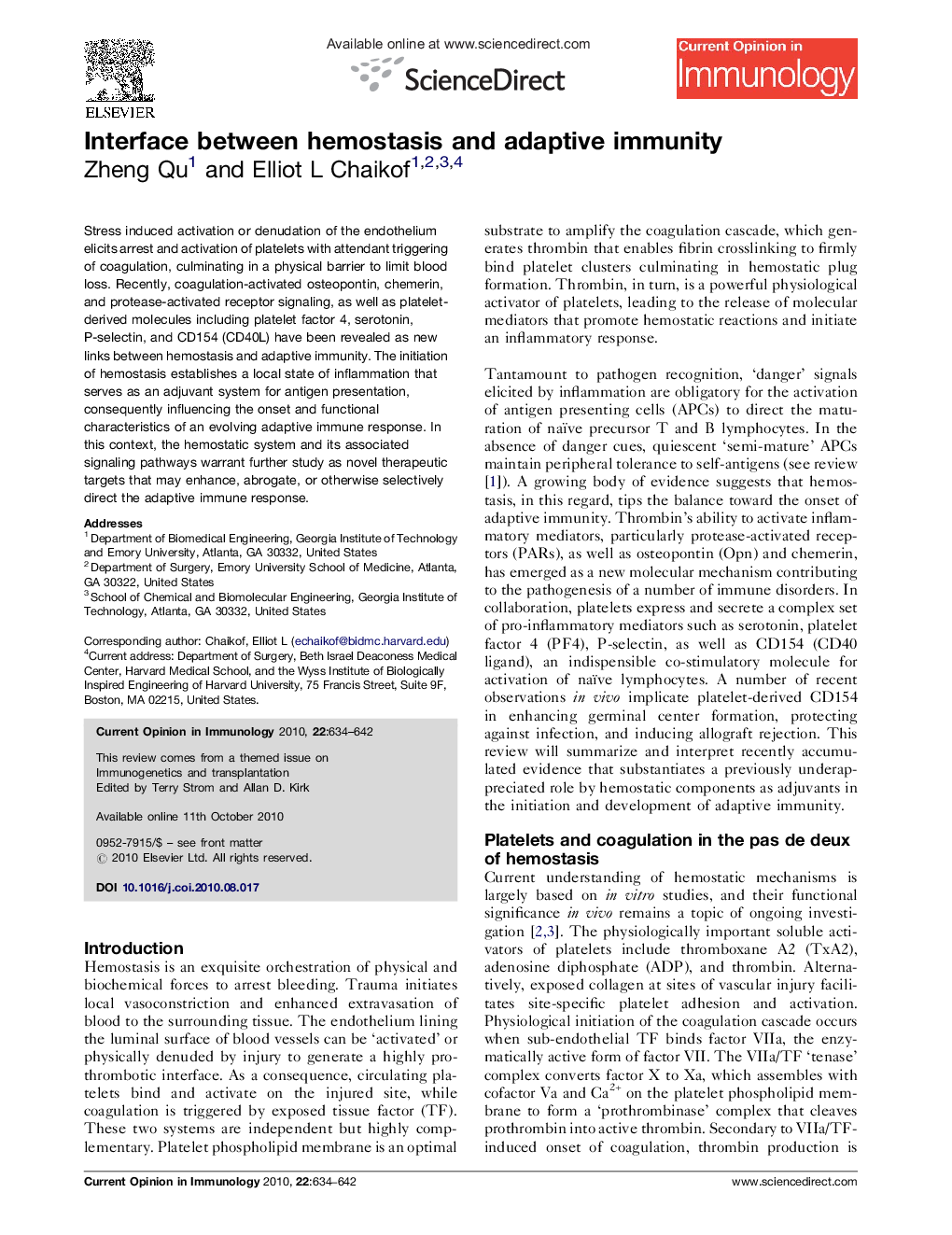| Article ID | Journal | Published Year | Pages | File Type |
|---|---|---|---|---|
| 6115315 | Current Opinion in Immunology | 2010 | 9 Pages |
Abstract
Stress induced activation or denudation of the endothelium elicits arrest and activation of platelets with attendant triggering of coagulation, culminating in a physical barrier to limit blood loss. Recently, coagulation-activated osteopontin, chemerin, and protease-activated receptor signaling, as well as platelet-derived molecules including platelet factor 4, serotonin, P-selectin, and CD154 (CD40L) have been revealed as new links between hemostasis and adaptive immunity. The initiation of hemostasis establishes a local state of inflammation that serves as an adjuvant system for antigen presentation, consequently influencing the onset and functional characteristics of an evolving adaptive immune response. In this context, the hemostatic system and its associated signaling pathways warrant further study as novel therapeutic targets that may enhance, abrogate, or otherwise selectively direct the adaptive immune response.
Related Topics
Life Sciences
Immunology and Microbiology
Immunology
Authors
Zheng Qu, Elliot L Chaikof,
